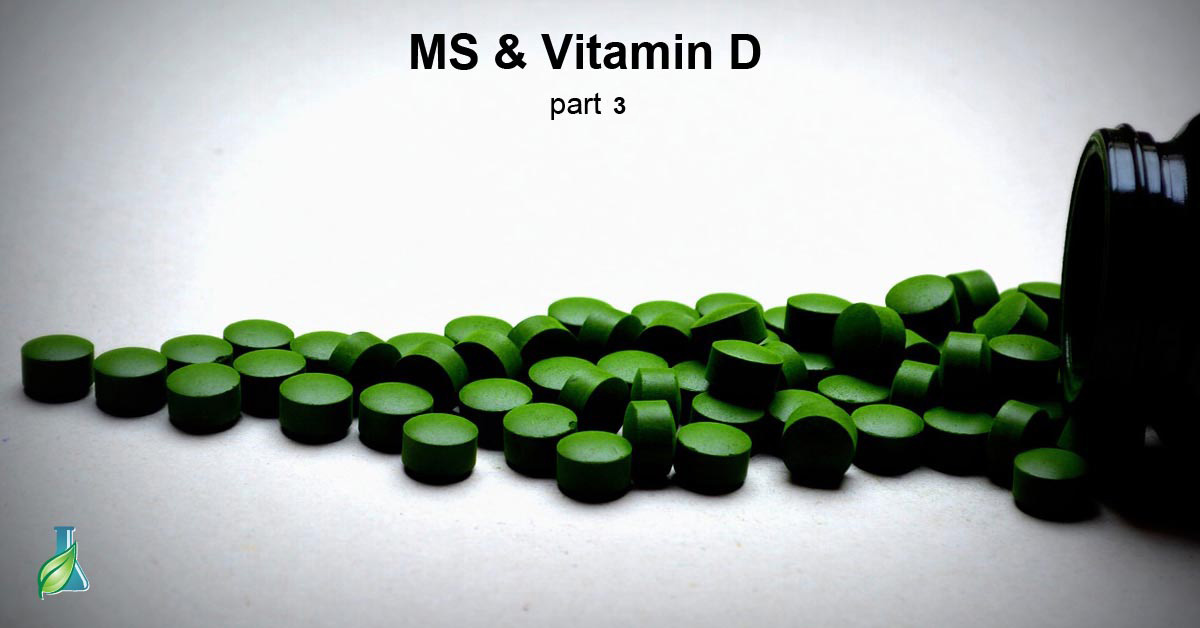
Professionals have begun to recommend that people with MS receive adequate amounts of vitamin D from day to day. According to B. M. Van Amerongen, DDS, PhD; and Co-researchers in the European Journal of Clinical Nutrition, this not only helps to control the illness, but also to minimize the risk of complications which arise from the disease, such as injuries due to falls.[1]
In addition, research conducted by Kassandra L. Munger, M.S and Co-researchers in the US Nurses’ Health Study has shown that vitamin D intake reduces the risk of developing MS by 40%, even if the supplementation is of a very low dose. The details of the study were published in Neurology.[2]
Between the years of 1992-2004, Munger, along with US researchers Lynn I. Levin, PhD; Bruce W. Hollis, PhD; et al. conducted an extensive study involving over 7 million army recruits and published it in the Journal of the American Medical Association.[3]
They compared the vitamin D levels in these individuals with their risk of developing MS. Out of this group, they discovered 257 new cases of MS. Interestingly, there was a significant decrease in the risk in white individuals if vitamin D levels were increased. This was not the case, however, in the blacks or Hispanics, who had lower vitamin D levels than the whites. In any case, levels of 40ng/mL or above seemed to provide adequate protection. For those with higher levels of vitamin D, there was a 2/3 reduction in the risk of developing MS.
Vitamin D’s safety levels
A small Canadian study was presented to the American Academy of Neurology in 2009. In this study, patients were given increasing doses of vitamin D in order to determine its safety at a high dose. It was found that high doses were not only safe, but reduced the rate of relapses by 2/3 through the course of the study. The higher doses used in the study averaged 14,000 IU per day versus 1,000IU for the group given standard doses. Those that took the higher doses of vitamin D received nearly twice as much of an effect than if they had been taking disease-modifying drugs like interferon. In addition, immune activity showed a shift in balance away from inflammation. This is compelling evidence, and furthers the point that a substantial dose should be prescribed for people with MS.
Epidemiological Evidence
The death rates from MS within 24 states were studied by D. Michael Freedman, PhD; and Co-researchers from the years of 1984-1995 and they published their findings in Occupational and Environmental Medicine.[4] MS patients were compared against the control patients who had died at the same age of other diseases. Factors such as sex, race, and socioeconomic status were also considered. The results indicated that the amount of sunlight people were exposed to in the course of their work was directly related to how likely they were to die from MS.
People that were exposed to high amounts of sunlight in their occupation as well as outside of work had the lowest death rates by far. That is, they had a ratio of only 0.24, or were only 24% as likely to die from MS as those who had little sun exposure. In addition, a study conducted by Michael J. Goldacre, FFPHM; and Co-researchers from Oxford University found that people with MS were half as likely to get skin cancer. The Journal of Epidemiology and Community Health published the details of this study.[5] Although MS patients were just as likely to get all other cancers, it seems that people who got cancer due to sun exposure were less likely to develop MS.
click here for MS and Vitamin D- part 4
1 VanAmerongen BM, Dijkstra CD, Lips P, et al. Multiple sclerosis and vitamin D: an update. Eur J Clin Nutr 2004
2 Munger KL, Zhang SM, O’Reilly E, et al. Vitamin D intake and incidence of multiple sclerosis. Neurology 2004; 62:60-65.
3 Munger KL, Levin LI, Hollis BW, et al. Serum 25-hydroxyvitamin D levels and risk of multiple sclerosis. JAMA 2006; 296:2832-2838
4 Freedman DM, Dosemeci M, Alavanja MC. Mortality from multiple sclerosis and exposure to residential and occupational solar radiation: a case-control study based on death certificates. Occup Environ Med 2000; 57:418-421.
5 Goldacre MJ, Seagroatt V, Yeates D, et al. Skin cancer in people with multiple sclerosis: a record linkage study. J Epidemiol Community Health 2004; 58:142-144.
